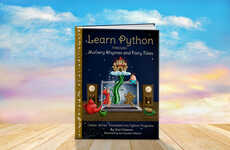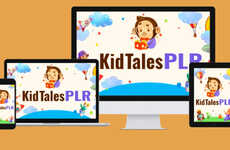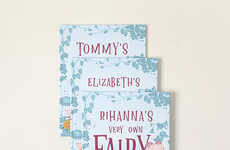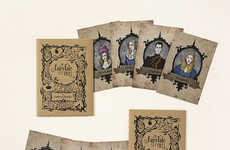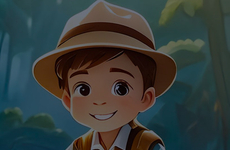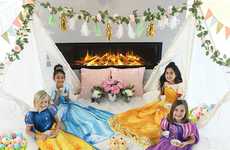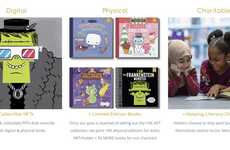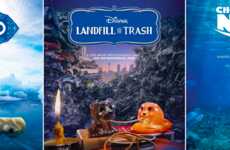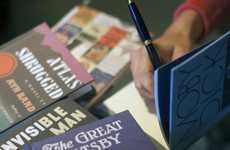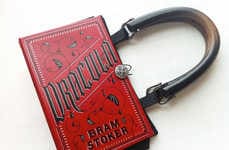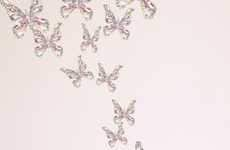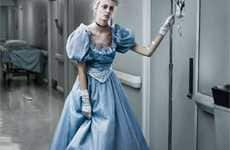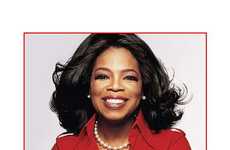
Politically Correct Parents Axe Literary Treasures
Sandra Winn — January 9, 2009 — Life-Stages
References: dailymail
If you ask a child or children of 1 in 4 parents whether they’ve read 'Cinderella,' 'Snow White and the Seven Dwarfs,' 'Hansel and Gretel,' or even 'Little Red Riding Hood,' chances are that the answer will be no. According to a report by The Daily Mail, politically correct parents are axing many classic fairy tales from their child’s reading list.
Many parents find classic literature like ‘Sleeping Beauty’ and ‘Jack and the Beanstalk’ to be too brutal. PC reasons for parents keeping children away from beloved stories like ‘Cinderella’ and ‘Snow White and the Seven Dwarfs’ are because the heroines do ‘housework.’ In fact, as many as 1 in 10 parents believe that the name of the ‘Seven Dwarfs’ should be changed because it is offensive.
Excuse me while I rant. While I am all for not forcing a child to sit and listen to a story they are not interested in or are scared of (classic or not), I’m completely against censorship of fairy tales. And, changing a title because it is ‘offensive?’ Shall all offensively titled books be changed then? If so, the amount of work such a project would require is unfathomable.
I agree that many classic fairy tales are brutal and scary and may be offensive; however, I think censoring them from children or requiring title changes is ridiculous. Despite their flaws, these are living books from which children can learn grammar, spelling and word flow, and they inspire imagination as well.
Many parents find classic literature like ‘Sleeping Beauty’ and ‘Jack and the Beanstalk’ to be too brutal. PC reasons for parents keeping children away from beloved stories like ‘Cinderella’ and ‘Snow White and the Seven Dwarfs’ are because the heroines do ‘housework.’ In fact, as many as 1 in 10 parents believe that the name of the ‘Seven Dwarfs’ should be changed because it is offensive.
Excuse me while I rant. While I am all for not forcing a child to sit and listen to a story they are not interested in or are scared of (classic or not), I’m completely against censorship of fairy tales. And, changing a title because it is ‘offensive?’ Shall all offensively titled books be changed then? If so, the amount of work such a project would require is unfathomable.
I agree that many classic fairy tales are brutal and scary and may be offensive; however, I think censoring them from children or requiring title changes is ridiculous. Despite their flaws, these are living books from which children can learn grammar, spelling and word flow, and they inspire imagination as well.
Trend Themes
1. Shifting Parental Preferences - Opportunity to create and promote alternative children's literature that aligns with the values and preferences of politically correct parents.
2. Rise of Censorship Debate - Potential for innovation in the development of tools or platforms that facilitate thoughtful discussions around the inclusion/exclusion of certain content in children's literature.
3. Reinventing Fairy Tales - Disruptive opportunity to reimagine classic fairy tales, creating updated versions that address contemporary issues and are more inclusive and diverse.
Industry Implications
1. Children's Literature - Opportunity for publishers and authors to cater to the growing demand for children's books that reflect the values and preferences of politically correct parents.
2. Education - Innovative approaches can be explored within the education sector to use classic fairy tales as tools for teaching grammar, spelling, creativity, and critical thinking skills.
3. Content Creation - Platforms or companies can leverage the demand for inclusive storytelling and create new forms of interactive content that reimagine fairy tales for modern audiences.
1.4
Score
Popularity
Activity
Freshness

